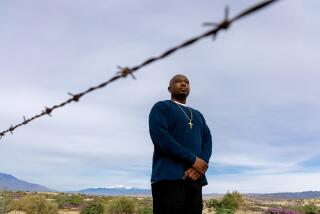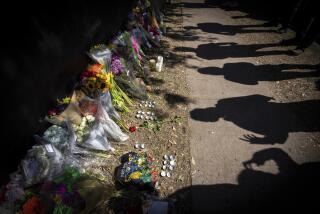Nine Families Accept Checks From 9/11 Victims Fund
WASHINGTON — Nine Sept. 11 victims’ families have accepted checks from the federal government’s compensation fund, the fund’s administrator said Thursday.
The families that accepted the cash payout came from a pool of 25 applicants who received notice of their award in July from the Justice Department, which oversees the fund. Four are appealing their award and 12 have yet to respond, the administrator, Kenneth Feinberg, said.
The average award for the 25 applicants is $1.36 million, and the payments range from $300,000 to $3 million. The Justice Department would not say how much the nine families received.
Feinberg said that while it would be a mistake to infer too much from just nine awards, they did provide some general guidance in what applicants could expect.
“I hope that this will give families a comfort level that they will be treated fairly,” he said Thursday.
Feinberg had said in March that the average award to victims would be about $1.85 million before outside income sources, like life insurance, were deducted. The awards announced Thursday are minus those deductions.
Names and other identifying characteristics, like the number of children, were left off the information the Justice Department distributed Thursday.
Not surprisingly, those with the highest incomes received the largest awards. For those earning more than $200,000, the awards ranged from $2.1 million to $3 million. Those who earned from $50,000 to $100,000 over age 35 received awards from $300,000 to $1.9 million. Those with incomes below $50,000 under age 35 received from $610,000 to $1.4 million.
New York Lawyer Debra Steinberg speculated that some older applicants might receive less because they are more likely to have life insurance.
So far, 662 people have applied to the victims fund, out of families of the more than 3,000 killed and injured in the attacks, according to the Justice Department.
Those who seek an award from the fund must give up their right to sue the airlines and other entities, although they are free to sue terrorists. The fund was set up as an alternative to the courts by Congress as part of the $15-billion airline bailout bill passed soon after the attacks.
Many families still ambivalent about the victims fund have been looking to the first awards as a gauge of how generous Feinberg was prepared to be. Feinberg said the early awards were the most straightforward claims with the simplest finances.
Mary Ellen Salamone, whose husband worked for Cantor Fitzgerald, said she and other family members were waiting to see how those who appeal their award fare in a follow-up hearing.
“Everybody wants to see how Mr. Feinberg handles those hearings,” Salamone said.
She said that some are just putting off filing because they are waiting for paperwork from employers. Others are stalling because the process is emotional, she said.
In a sign that a number of victims may turn to the courts, nearly 1,500 people and businesses filed notices of claim with the Port Authority of New York and New Jersey by the July 10 deadline preserving their right to sue.
Not all of those will necessarily file lawsuits. But New York law requires lawsuits against the Port Authority to be filed within a year of the incident prompting the litigation so the lawsuits must be filed by Sept. 10. Ten suits have been filed so far against the airlines.
New York lawyer Lee Kreindler, whose firm is representing about 250 families, said a number of his clients have decided to sue. He added that he was not encouraged by the early awards, which he called “much lower than they should be.”
More to Read
Sign up for Essential California
The most important California stories and recommendations in your inbox every morning.
You may occasionally receive promotional content from the Los Angeles Times.










